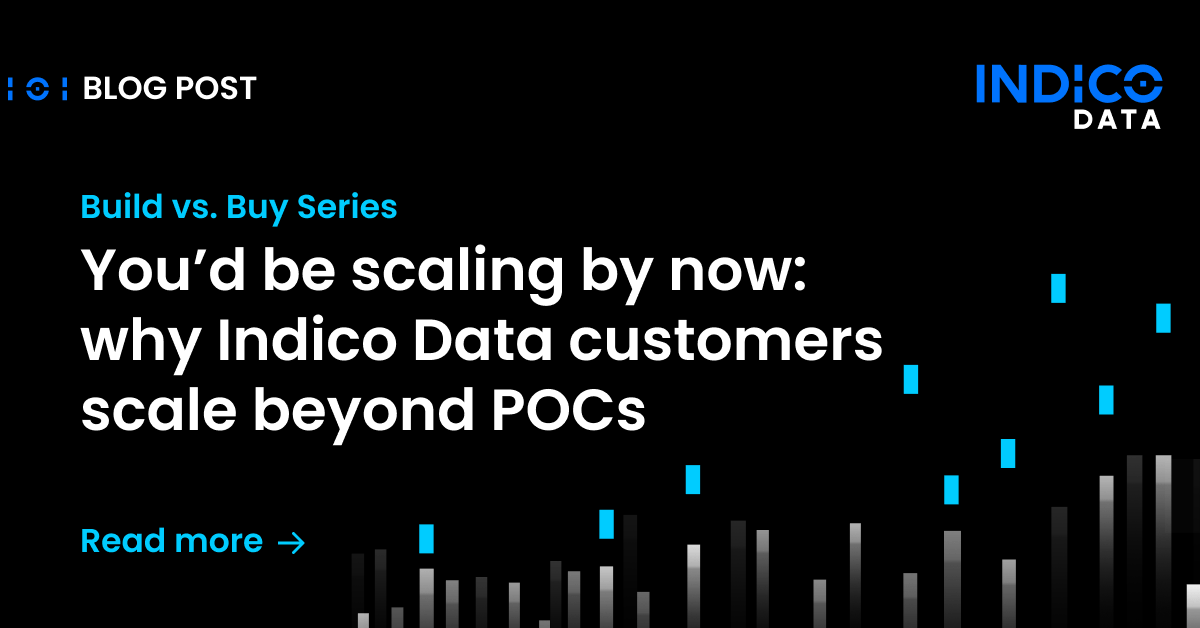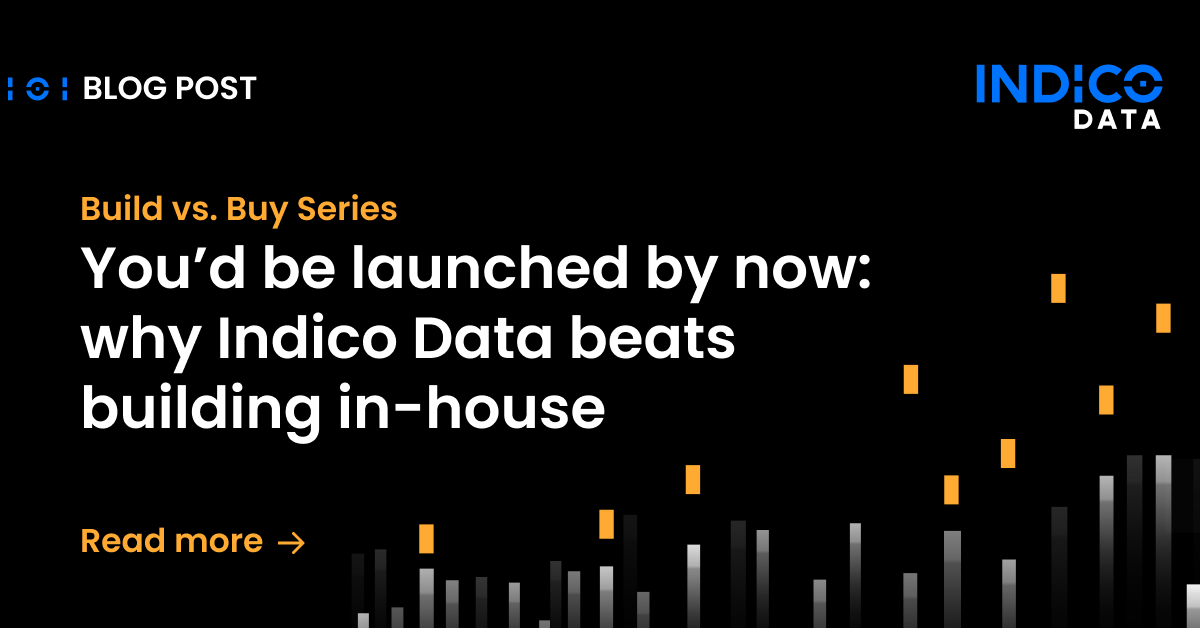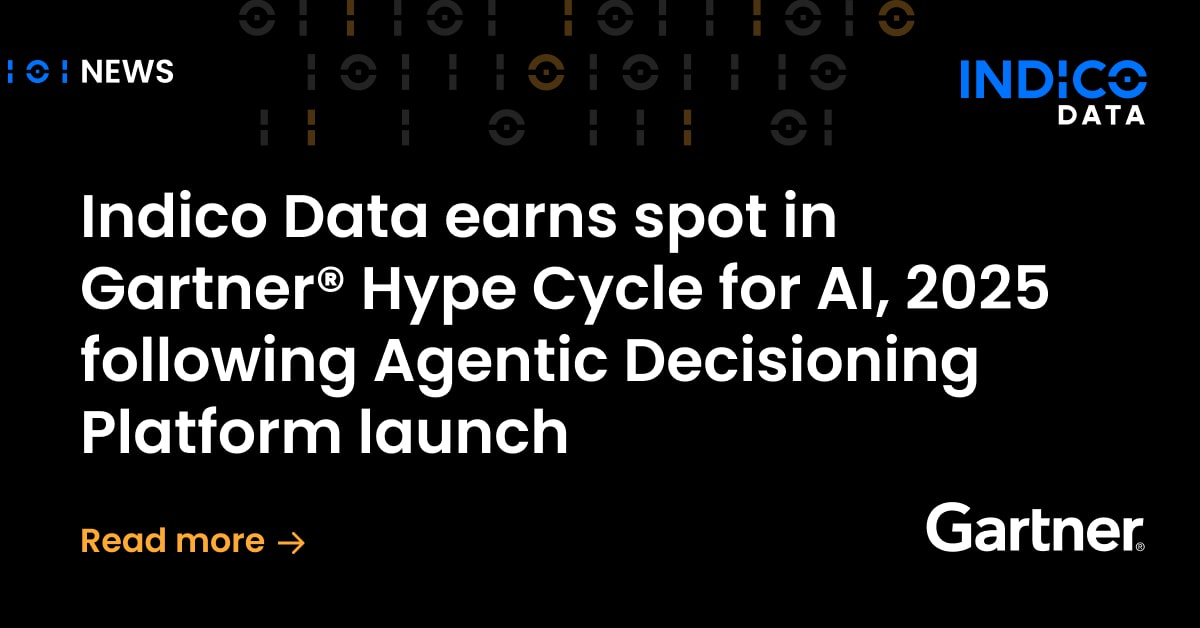Traditional approaches to insurance are no longer enough to navigate the complexities of our industry. Insurance companies must have a keen understanding of emerging technologies and a willingness to innovate effectively. This was the focus of a recent webinar hosted by Indico, where industry leaders shared their insights on how AI, data analytics, and strategic partnerships are reshaping decision-making processes for insurance carriers. The panelists—Jeremy Stinson, VP of Marketing from Indico; Farooq Sheikh, Global Head of Banking at Unqork; Mike Quintal, Vice President of Policy and Billing Applications from Guidewire; and David Moorhead, Insurance Executive, Consulting from EY—brought a wealth of experience to the table. They offered practical advice and forward-thinking strategies that we believe will be critical for staying competitive in today’s insurance market.
The role of AI in risk assessment
David Moorhead kicked off the discussion by emphasizing the growing importance of AI in enhancing risk assessment. “I think we’re in a really good place, and analytics continues to drive our industry,” Moorhead stated, underscoring the role of both traditional and generative AI in providing deeper insights that are crucial for effective risk management. However, it’s also true that the sheer volume of data now available poses a significant challenge, particularly in ensuring that this data is accurate and actionable. This is where advanced analytics and AI come into play, enabling carriers to sift through vast amounts of information to identify trends and make informed decisions.
Related content: Unqork global head Farooq Sheikh on banking, insurance, and healthcare automation
Challenges in integrating AI and data platforms
The conversation then shifted to the challenges carriers face when integrating AI and data platforms into their operations. Farooq Sheikh highlighted the persistent issue of data silos, which continue to hinder the effectiveness of AI-driven initiatives. “Historically, all the carriers had the issue around data silos, right? And data access and availability and quality and so forth. And that challenge continues even now with some of the legacy platforms and infrastructure that a lot of the carriers have in place,” Sheikh noted. This problem is compounded by the rapid pace of technological advancements, which can make it difficult for carriers to keep up with the latest tools and methodologies.
One of the key takeaways from this discussion was the importance of flexibility and adaptability. As Sheikh pointed out, “Whether it’s the traditional type of machine learning AI… [or] generative AI and the utilization of LLMs, that part of the technology stack is just moving so quickly,” and carriers need to be prepared to pivot as new technologies emerge. This requires a shift in mindset, moving away from rigid, monolithic systems towards more modular, adaptable architectures. By doing so, carriers can better integrate new AI capabilities into their existing workflows, ultimately driving more efficient and effective decision-making.
Strategic partnerships: a path to better decisioning
Strategic partnerships emerged as a critical component in enhancing carrier decision-making. Indico’s Jeremy Stinson emphasized the need for alignment between partners, both in terms of goals and values. “And that’s the key for me when we guide carriers as well… it’s very important to consider options a hundred percent, right? …But you have to look at three or four critical factors,” he explained. These factors include the partner’s understanding of the carrier’s specific use case, as well as organizational and value alignment. By carefully selecting partners who are aligned with their strategic objectives, carriers can maximize the impact of their technology investments.
Stinson also stressed the importance of starting with the end in mind, a principle echoed by our panelists. He noted that carriers often approach partnerships with a vague “AI agenda” rather than a clearly defined use case. This, he argued, can lead to suboptimal outcomes. Instead, carriers should focus on the specific business outcomes they want to achieve and work backwards to identify the right partners and technologies to help them get there.
Ensuring secure data sharing
Another significant challenge discussed during the webinar was the secure sharing of data within ecosystems. Sheikh underscored the complexity of managing data privacy and regulatory compliance, particularly in a global context. “You have to manage your data very, very carefully, including how you expose your data to your partners and to some of their emerging pieces of technology,” Sheikh advised. The discussion highlighted the need for carriers to develop robust frameworks for data governance, ensuring that they can share data securely while complying with all relevant regulations.
David Moorhead added that while technology solutions are critical, they must be complemented by sophisticated processes. “Humans need to own the decision,” he argued, emphasizing that AI should augment, not replace, human decision-making. Indico follows this human-centered approach as well—we believe that AI is best at enhancing human work, not replacing it.
Related content: Enhancing risk assessment in underwriting with Intelligent Document Processing
The future of insurance ecosystems
As the discussion turned to the future, the panelists shared their thoughts on the long-term impacts of adopting integrated ecosystems. Mike Quintal suggested that these ecosystems could play a crucial role in enabling hyper-personalization, a trend that is becoming increasingly important in the insurance industry. “Customers expect the experience to be as personalized as possible,” Quintal noted, predicting that this trend will drive greater competition among carriers and technology vendors alike.
On the topic of change in the industry, Farooq Sheikh pointed out that the pace of change is accelerating indeed, and carriers must be able to adapt quickly to new developments. “Each decision should increase your rate of change,” he advised, stressing the importance of building leadership teams that are not only familiar with the latest technologies but also capable of driving meaningful change within their organizations.
Navigating the path forward
Overall, the webinar drove home the importance of a collaborative, ecosystem-driven approach to enhancing carrier decision-making. As the insurance industry continues to evolve, carriers that can effectively integrate advanced technologies like AI and data analytics into their operations—and do so in partnership with the right ecosystem players—will be best positioned to succeed. Indico, with its focus on enabling better decision-making through data-driven insights, stands at the forefront of this transformation, helping carriers navigate the complexities of the modern insurance landscape.
Subscribe to our LinkedIn newsletter.
Frequently asked questions
- How can smaller insurance carriers keep up with larger ones in adopting AI and data analytics? Smaller insurance carriers can remain competitive by leveraging cloud-based AI and data analytics solutions that offer scalability without the need for heavy upfront investments in infrastructure. They should focus on strategic partnerships with technology providers who understand their specific needs, allowing them to deploy AI incrementally, starting with targeted use cases. Additionally, smaller carriers can benefit from participating in industry consortia or alliances to share insights and resources, thereby enhancing their ability to innovate and keep pace with larger competitors.
- What specific strategies can carriers use to overcome data silos when integrating AI? Carriers can overcome data silos by implementing a unified data management strategy that includes the use of data lakes or centralized data platforms that allow seamless data sharing across departments. Adopting data interoperability standards and APIs can also facilitate the integration of data from disparate sources. Moreover, investing in data governance frameworks ensures that data quality and accessibility are maintained, enabling AI systems to operate effectively. Collaborative tools and cross-functional teams can further help break down silos by promoting a culture of data sharing and transparency.
- What role does customer feedback play in enhancing AI-driven decision-making in insurance? Customer feedback plays a critical role in refining AI models and decision-making processes in insurance. By incorporating real-time feedback into AI systems, carriers can improve the accuracy of risk assessments, personalize product offerings, and enhance customer satisfaction. Continuous monitoring of customer interactions and sentiment analysis allows carriers to adjust their strategies promptly. In addition, engaging with customers through surveys, focus groups, and digital platforms provides valuable insights that can inform the development of AI-driven solutions that are more aligned with customer expectations and needs.


